Therefore, allowing for overlap and the inclusion of leaders like Henry and Webster, approximately two hundred- and-fifty individuals are considered here as “Founding Fathers.”
To determine whether these “Founding Fathers” were generally atheists, agnostics, and deists, one must first define those terms. An “atheist” is one who professes to believe that there is no God; an “agnostic” is one who professes that nothing can be known beyond what is visible and tangible; 4 and a “deist” is one who believes in an impersonal God who is no longer involved with mankind. In other words, a “deist” embraces the “clockmaker theory” hat there was a God who made the universe and wound it up like a clock; however, it now runs of its own volition; the clockmaker is gone and therefore does not respond to man. Today the terms “atheist,” “agnostic,” and “deist” have been used together so often that their meanings have almost become synonymous. In fact, many dictionaries list these words as synonyms. Those who advance the notion that this was the belief system of the Founders often publish information attempting to prove that the Founders were irreligious. Some of the quotes they set forth include: This would be the best of all possible worlds if there were no religion in it. John Adams The government of the United States is in no sense founded on the Christian religion. George Washington I disbelieve all holy men and holy books. Thomas Paine Are these statements accurate? Did these prominent Founders truly repudiate religion? An answer will be found by an examination of the sources of the above statements. David Barton - In our home the burping level is kept at a minimum, food throwing discouraged. We change. The conversation is altered. Are we being hypocritical? No.
1 Comment
As the war prolonged, the shortage of Bibles remained a problem. Consequently, Robert Aitken, publisher of The Pennsylvania Magazine, petitioned Congress on January 21, 1781, for permission to print the Bibles on his presses here in America rather than import them. He pointed out to Congress that his Bible would be “a neat edition of the Holy Scriptures for the use of schools.” 128 Congress approved his request and appointed a committee of James Duane, Thomas McKean, and John Witherspoon too verses the project. In October 1781, amidst the work on the Bible, the Americans won the Battle of Yorktown and the British troops laid down their arms. The British press reported the activities surrounding the surrender: It was on the 19th of October that Lord Cornwallis surrendered himself and his whole army.
Two days after the capitulation took place, Divine service was performed in all the different brigades and divisions of the American army in order to return thanks to the Almighty for this great event; and it was recommended by General Washington to all the troops that were not upon duty, in his general orders, that they would assist at Divine service “with a serious deportment and with that sensibility of heart which the recollection of the surprising and particular interposition of Providence in their favor claimed.” On October 24, 1781, Congress, too, set aside a time to honor God for this victory and: Resolved, That Congress will at two o’clock this day go in procession to the Dutch Lutheran Church and return thanks to Almighty God for crowning the allied arms of the United States and France with success by the surrender of the whole British Army under the command of the Earl Cornwallis. Despite the victory, work on the new Bible continued. As it neared its final stage of readiness in late summer 1782, James Duane, chairman of the Congressional committee, reported to Congress: He Mr. Aitken undertook this expensive work at a time when from the circumstances of neither the war an English edition of the Bible could not be imported, nor any opinion formed how long the obstruction might continue. David Barton - We are being sensitive to the needs of our guests. When we plan these services every single weekend we are serving the food, the truth which is the Word of God, yet we are serving it in a more creative and thoughtful way. The evidence is clear that for years the Founders pursued peaceful reconciliation and entreaty and that it was Great Britain which terminated the discussions. In fact, separation from Great Britain was not selected as the American course of action until two years after King George III had drawn the sword and sent armed troops against his own citizens in America. As signer of the Declaration John Witherspoon made clear: On the part of America, there was not the most distant thought of subverting the government or of hurting the interest of the people of Great Britain; but of defending their own privileges from unjust encroachment; there was not the least desire of withdrawing their allegiance from the common sovereign King George III till it became absolutely necessary and indeed, was his own choice. When the decision for a separation was made, the Founders still maintained their strong entreaty to God for the justness of their actions. For example, in a letter to British officials, Samuel Adams, the Father of the American Revolution, declared: There is One above us who will take exemplary vengeance for every insult upon His majesty. You know that the cause of America is just.
You know that she contends for that freedom to which all men are entitled that she contends against oppression, rapine, and more than savage barbarity. The blood of the innocent is upon your hands, and all the waters of the ocean will not wash it away. We again make our solemn appeal to the God of heaven to decide between you and us. And we pray that, in the doubtful scale of battle, we may be successful as we have justice on our side, and that the merciful Saviour of the world may forgive our oppressors. Adams also authored a manifesto for the Continental Congress which reflected a similar tone: We, therefore, the Congress of the United States of America, do solemnly declare and proclaim that. We appeal to the God who searcheth the hearts of men for the rectitude of our intentions; and in His holy presence declare that, as we are not moved by any light or hasty suggestions of anger or revenge, so through every possible change of fortune we will adhere to this our determination. After the separation occurred, despite the years of peaceful entreaties, some British leaders specifically accused the Americans of anarchy and rebellion. To this charge, John Quincy Adams forcefully responded: There was no anarchy. The people of the North American union, and of its constituent States, were associated bodies of civilized men and Christians in a state of nature, but not of anarchy. David Barton - We are being sensitive to the needs of our guests, the seeker, the nonbeliever, as well as the saint. Worship must be sensitive. It is the day of the first visible triumph over death, hell and the grave! It was the birth day of the believer in Christ, to whom and through whom it opened up the way which, by repentance and faith, leads unto everlasting life and eternal happiness! On that day we rest, and to us it is the Sabbath of the Lord its decent observance, in a Christian community, is that which ought to be expected.
The defense argued that to legislate according to Christian standards violated religious toleration. However, the court vehemently disagreed with this argument, pointing out: What gave to us this noble safeguard of religious toleration? It was Christianity. But this toleration, thus granted, is a religious toleration; it is the free exercise and enjoyment of religious profession and worship, with two provisos, one of which, that which guards against acts of licentiousness immorality, testifies to the Christian construction. What constitutes the standard of good morals? Is it not Christianity? There certainly is none other. The day of moral virtue in which we live would, in an instant, if that standard were abolished, lapse into the dark and murky night of Pagan immorality. In the Courts over which we preside, we daily acknowledge Christianity as the most solemn part of our administration. A Christian witness, having no religious scruples about placing his hand upon the book, is sworn upon the holy Evangelists the books of the New Testament which testify of our Savior’s birth, life, death, and resurrection; this is so common a matter that it is little thought of as an evidence of the part which Christianity has in the common law. I agree fully to what is beautifully and appropriately said in Updegraph v. The Commonwealth Christianity, general Christianity, is, and always has been, a part of the common law: “not Christianity founded on any particular religious tenets; not Christianity with an established church but Christianity with liberty of conscience to all men.” In the view of the Charleston court, Christian principles had produced America’s toleration for other religions; and while America did legislate according to Christian standards of conduct for social behavior, it did not tell other religions how, where, when, or even whether to worship. The only restraints placed on those religions were that their religious practices not be licentious or subversive of public morality or safety. Aside from these stipulations, America granted broad religious toleration to other religions not in spite of, but because of its Christian beliefs. David Barton - We are being sensitive to the needs of our guests, the seeker, the nonbeliever, as well as the saint. Worship must be sensitive.Join a church locally. Also establish a place of worship in your life. It might be in your study, in your apartment, at your desk. And for the support of this Declaration, with a firm reliance on the Protection of Divine Providence, we mutually pledge to each other our Lives, our Fortunes, and our sacred Honor.” After citing many additional historical examples, the Court then reviewed several legal precedents which further buttressed its declaration: We find that in Updegraph v.
The Commonwealth, 11 S. & R. 394, 400, it was decided that, “Christianity, general Christianity, is, and always has been, a part of the common law not Christianity with an established church but Christianity with liberty of conscience to all men.” And in The People v. Ruggles, 8 Johns. 290, 294, 295, Chancellor Kent, the great commentator on American law, speaking as Chief Justice of the Supreme Court of New York, said: “The people of this State, in common with the people of this country, profess the general doctrines of Christianity, as the rule of their faith and practice. We are a Christian people, and the morality of the country is deeply engrafted upon Christianity and not upon the doctrines or worships of those impostors other religions.” And in the famous case of Vidal v. Girard’s Executors, How. 127, 198, this Court observed: “It is also said, and truly, that the Christian religion is a part of the common law.” After several pages of similar discourse, the Court concluded: There is no dissonance in these declarations. There is a universal language pervading them all, having one meaning; they affirm and reaffirm that this is a religious nation. These are not individual sayings, declarations of private persons: they are organic legal, governmental utterances; they speak the voice of the entire people. These, and many other matters which might be noticed, add a volume of unofficial declarations to the mass of organic utterances that this is a Christian nation. As far as the Court was concerned, the issue was closed; it would never support any action which might have the effect of suppressing religion or of limiting religious expression. Since the Court cited Updegraph v. Commonwealth, People v. Ruggles, and Vidal v. Girard’s Executors in reaching its conclusion, it will be profitable to review these cases. However, before examining these three cases and seventeen others an observation should first be made about rulings issued by State Supreme Courts. David Barton - Once you establish a place, that place can become like the Garden of Gethsemane was for Jesus, a place of worship with a special aura surrounding it. Consequently, as Justice Joseph Story explained, through Article VI it was possible that on the federal level the Catholic and the Protestant, the Calvinist and the Armenian, the Jew and the Infidel, may sit down at the common table of the national councils without any inquisition into their faith or mode of worship. Did this therefore mean as many currently claim that the Founders were attempting to prevent an investigation into the religious beliefs of a candidate, or that such beliefs were immaterial to his election?
Definitely not see the Founders’ clear views on this issue in Chapter 18. The issue was not the investigation of the religious beliefs of candidates, but rather the jurisdiction for such investigations. The Founders believed that the investigation of the religious views of a candidate should not be conducted by the federal government, but rather by the voters in each State. What evidence supports this? The discussion of this topic during the ratification debates provides extensive evidence. For example, in the North Carolina ratifying convention, Governor Samuel Johnston explained: It is apprehended that Jews, Mahometans, pagans, &c., may be elected to high offices under the government of the United States. Those who are Mahometans, or any others who are not professors of the Christian religion, can never be elected to the office of President or other high office, but in one of two cases. First, if the people of America lay aside the Christian religion altogether, it may happen. Should this unfortunately take place, the people will choose such men as think as they do themselves. Another case is if any persons of such descriptions should, notwithstanding their religion, acquire the confidence and esteem of the people of America by their good conduct and practice of virtue, they may be chosen. Signer of the Constitution Richard Dobbs Spaight also declared: As to the subject of religion no power is given to the general federal government to interfere with it at all. No sect is preferred to another. Every man has a right to worship the Supreme Being in the manner he thinks proper. David Barton - The fourth suggestion. Put it into practice. Worship isn't worship unless there is change. Put into practice what you have learned, how you have experienced God. Live it out. In fact, in 1876 eight years after the Fourteenth Amendment had been ratified, and following two Supreme Court cases on that Amendment a noted commentator reported: The Rule adopted by the Supreme Court of the United States in interpreting the Fourteenth Amendment makes it inapplicable to the religious liberty or any other right of the citizen as determined by the state of which he is resident.
The Court in the cases of Paul vs. Virginia and of the New Orleans Slaughter-house (16 Wallace, p. 36), laid down the principle. There is nothing in the last three amendments to the Constitution that reaches the question of religion, and nothing anywhere else in this instrument that places the states under the slightest restraint with reference to this subject; and hence it is true, as remarked by Justice Story [one of the Supreme Court’s most noted legal scholars, appointed by President James Madison in his Commentaries on the Constitution (section 1879), that “the whole power over the subject of religion is left exclusively to the state governments, to be acted upon according to their sense of justice and the state constitutions.” When one understands the intent of these two Amendments, it is not surprising that no previous Court had ever coupled them as did the 1947 Everson Court. † In fact, in 1970, Justice William Douglas openly acknowledged that by coupling the Fourteenth Amendment and the Bill of Rights, the Court had not only usurped state authority over many areas but that it had also created an American revolution that involved the imposition of new and far reaching constitutional restraints on the states. Nationalization of many civil liberties has been the consequence of the Fourteenth Amendment, reversing the historic position that the foundations of those liberties rested largely in state law and so the revolution occasioned by the Fourteenth Amendment has progressed as Article after Article in the Bill of Rights has been incorporated in it [by the Court] and made applicable to the states. The Everson decision represented a disturbing and unprecedented judicial paradigm shift. David Barton - You can't compartmentalize worship. You can't say that you will worship God from 10:05am until 11:10am on Sunday and from 7:00pm to 8:00pm on Wednesday evenings. Worship must transcend every area of your life. |

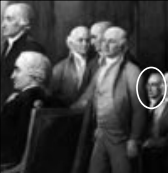
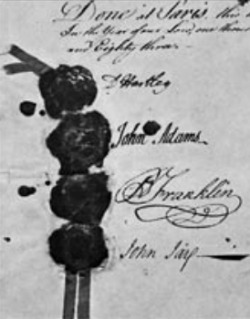
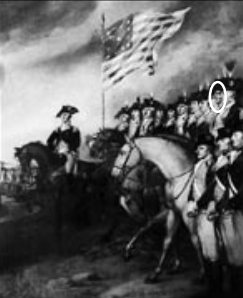
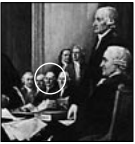
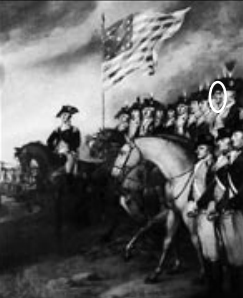
 RSS Feed
RSS Feed